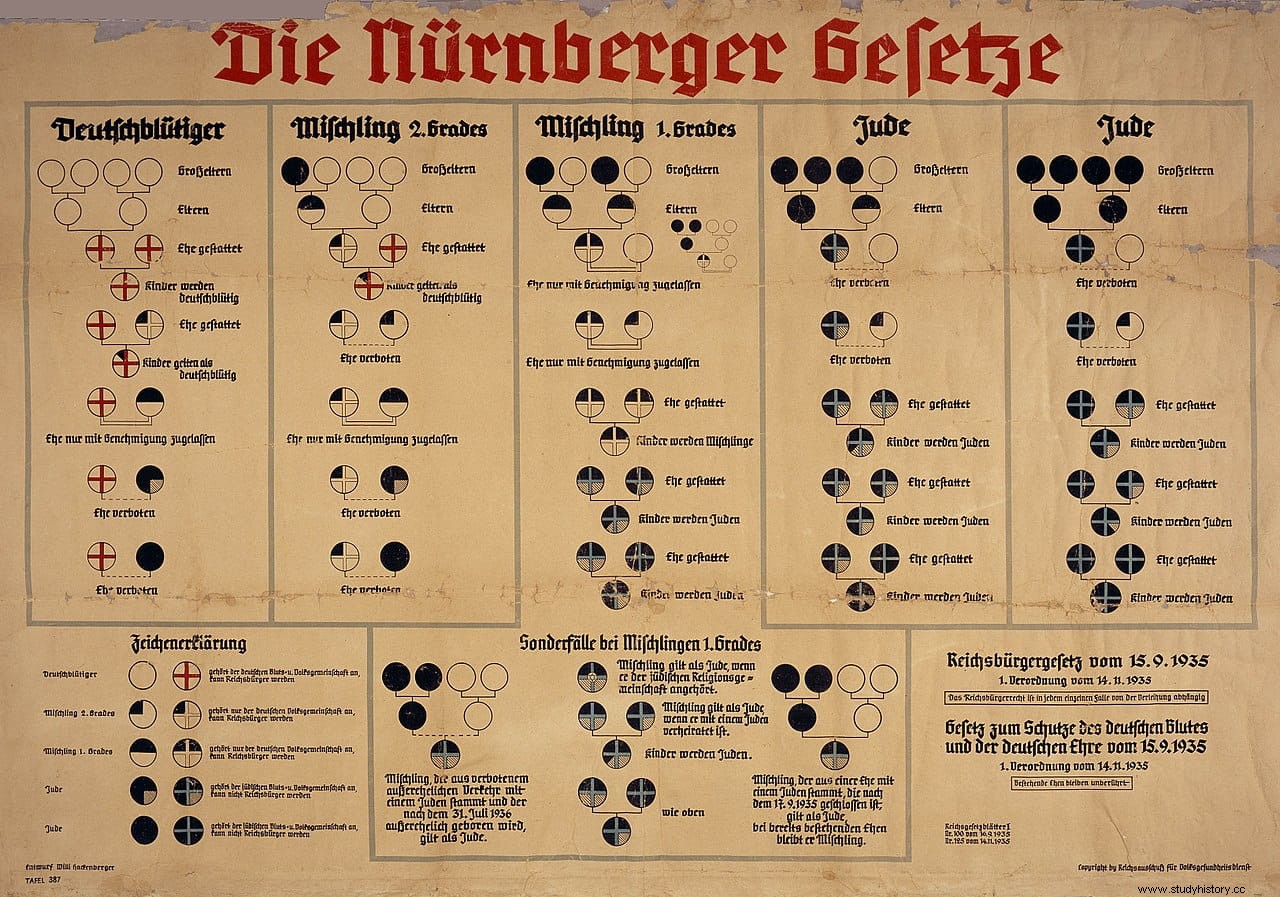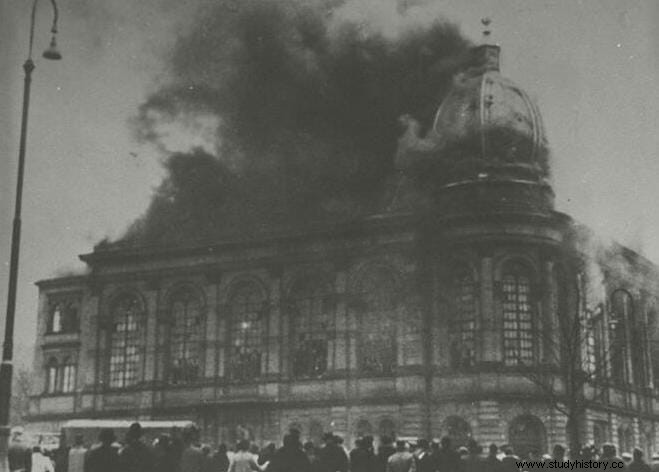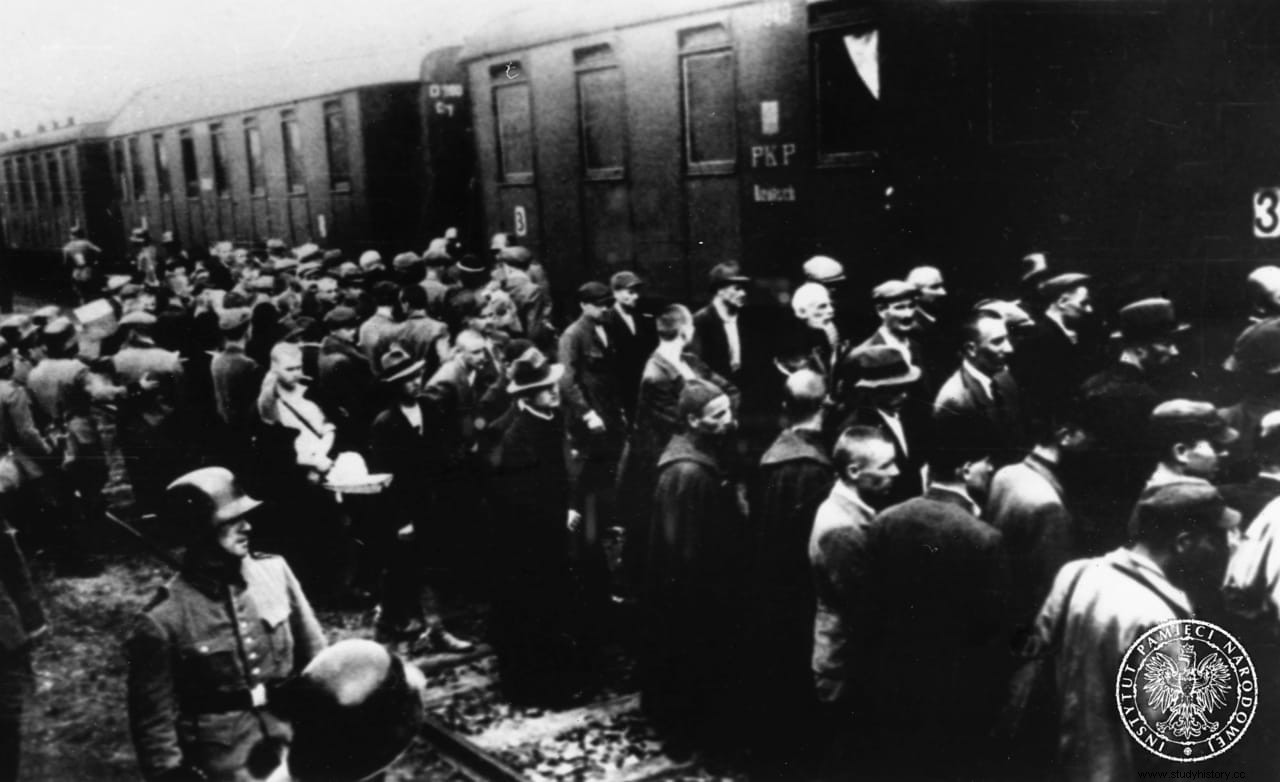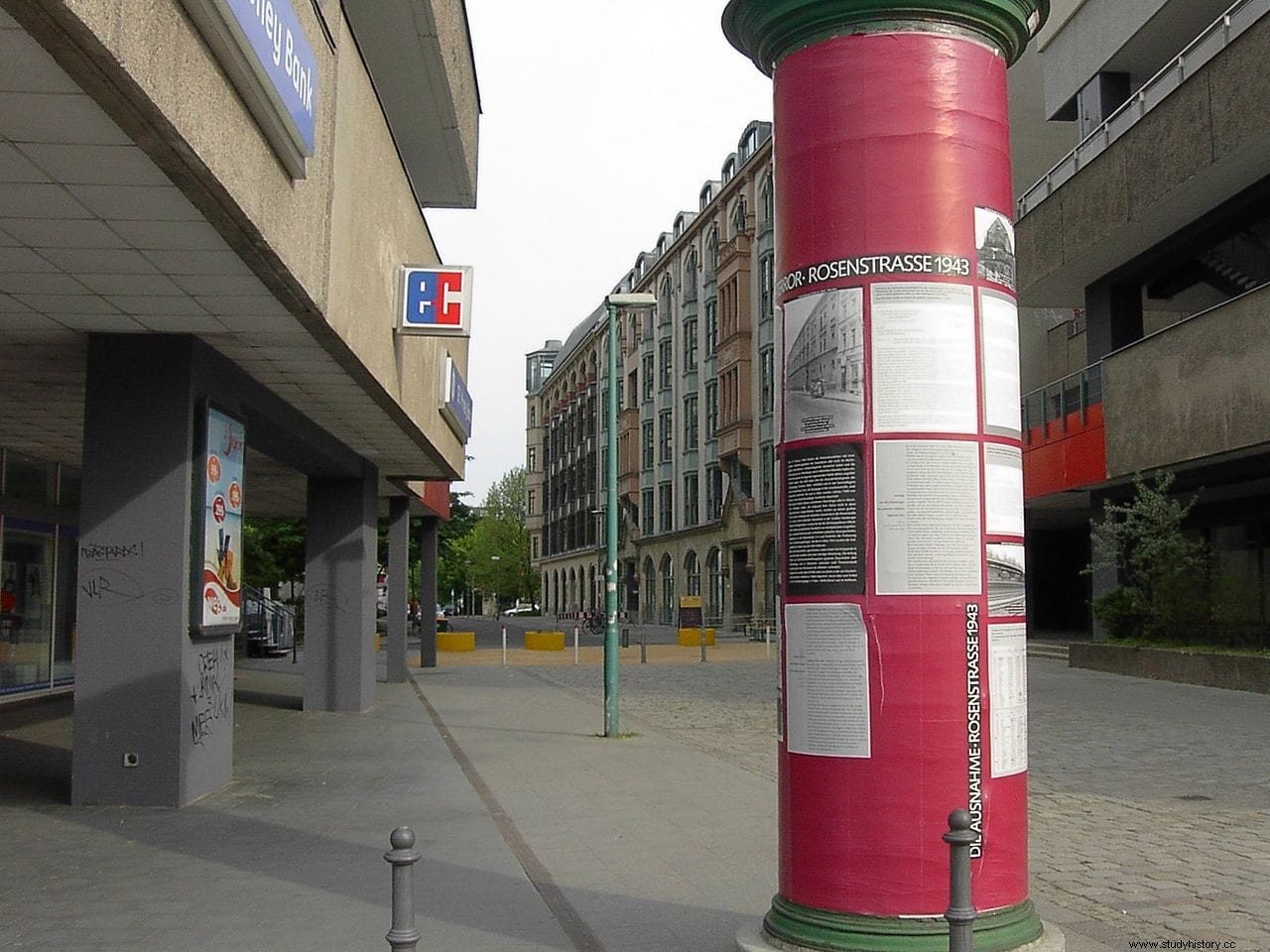In 2003, the German Margarethe von Trotta, director, screenwriter, actress and wife of the famous writer Volker Schlöndorf, won the David de Donatello Award (the most important award in Italy in the cinematographic sector) in the category of best European film with her film Rosenstraße (The street of roses ). It is a German-Dutch co-production whose protagonist also won the award for best actress at the Venice Film Festival and which recounts an unusual historical episode that occurred in Berlin in the midst of World War II:the demonstrations carried out by Gentile wives of Jews for the imprisonment of their husbands.
As is known, the rise to power of the Nazi regime in 1933 was a turn of the screw to secular anti-Semitism that had been growing in the country, especially since the 19th century, and that the NSDAP was responsible for disseminating in its programs, expressing it when it entered the government in the Nuremberg Laws of 1935. This legislative corpus was drawn up by the jurist Wilhelm Frick with the help of the ideologue Julius Streicher and presented during the annual party congress. Its objective was to separate the Jewish population (considered gemeinschaftsfremde or residents, along with gypsies, the disabled and others) of the aria (the Volksgemeinschaft or popular community), depriving her of German nationality and with the consequent prohibition of access to public office and other professions.
To do this, he established a racial taxonomy that classified the Jews by the degree of purity of their blood, so that there were pure or mixed and the latter, in turn, were divided into degrees:those of the first degree were those who had had only two Jewish grandparents, which opened the possibility of retaining or regaining citizenship, holding certain jobs, and marrying someone of German blood; second-grade mixed children only had one Jewish grandparent and would enjoy more rights; finally, there were those whose Jewish condition went back further than their grandparents, being these already German, which made them the least discriminated group. Although the Nazis sought the divorce of mixed couples, those who were Jewish and German, the majority refused and the government preferred not to retaliate against them to prevent this opposition from spreading.

If already in 1933 the first provisions that postponed Jews to minor jobs began to be enacted, the following year, when Hindenburg died and Hitler had absolute power, the situation worsened. The Jews saw their entry into the Wehrmacht vetoed, they were removed from the liberal professions and their status was indicated on identity documents, while children could not attend normal schools and businessmen were excluded from public competitions. In 1938, after an attack on the German embassy in Paris, Goebbels promoted anti-Semitic demonstrations that culminated in the so-called Night of Broken Glass , a pogrom carried out by the SA (party stormtroopers) against shops, synagogues and Jewish properties in general.
That action resulted in a hundred deaths and thirty thousand detainees, who were later deported to the newly created concentration camps, expropriating their property; They were joined by tens of thousands of others who emigrated fleeing from danger. But it was only the first step towards something more serious, since in the fall of 1941, with the country at war and the Jewish population of the occupied countries confined in ghettos, the so-called Final Solution began.> , an extermination plan that coincided chronologically with Operation Barbarossa (invasion of the Soviet Union):the Jews would become forced laborers and those who were not fit for it would be executed.

Adolf Eichmann, Heinrich Himmler and Reinhard Heydrich were in charge of putting it into practice, using the Einsatzgruppen , operations groups) formed by the SS (Party Protection Squads) and the SD (SS intelligence service), as well as the extermination camps. The unfortunate Jews were joined by gypsies, homosexuals, Slavs, communists and, in general, any group that did not conform to Nazi ideals. And that was the situation when the war took a turn and the German army crashed in Stalingrad, causing the plan called Großaktion Juden to be unleashed in February 1943. (Major Action on Jews), intended to replace, for reasons of internal security, the nearly seventy-five thousand Jews who were still working in the armament factories.
Their fate was to be deported by train to the Riga and Auschwitz concentration camps. However, some were classified as mixed and therefore excluded, at least for now:the geltungsjude (those who lived with Aryan relatives), those over sixty-five (unless they had partners under that age), decorated World War I veterans, some considered special for various reasons (in another article we saw the case of the doctor of Hitler, for example) and those who were married to mischlingen (women of pure German blood). Now, even if they weren't deported, they couldn't keep their jobs either.
As of February 26, they were summoned to the police stations to review their work papers but, at the same time, in some places the Gestapo and the SS began to arrest them. In two days the work was done except in Berlin, where the number of Jews was greater (about 1,800 of the total of 6,000) and it lasted a week. This meant that, just in case, rapid and coordinated raids were carried out, mostly in the factories themselves, hence the name given to the operation in the postwar period:Fabrikaktion .

The Berlin Jews thus went from continuous but minor harassment - it depended on the character of each officer - that they had suffered until then to being locked up for vague and predictably much worse reasons. They were locked up in various places, from garages to auditoriums, through stables and even buildings in their community (synagogues, asylums, etc), but the most prominent place was the Rosenstraße welfare headquarters. What was intended this time was to separate them while they looked for substitutes for them in their jobs by full-fledged Germans.
However, given the time taken, the authorities were unable to carry out the arrests discreetly, as they had intended, nor did they later provide the relevant information, so rumors began to spread that these Jews would also be deported. Consequently, his wives began to gather in front of the Rosenstraße building, first waiting for news and then improvising protest demonstrations that gradually grew, both in intensity and in number of attendees, ignoring the order received to dissolve.

Within a week there were already six thousand gathering, putting the government in a bind because that action prompted others like the one in April 1943 in Dortmund-Hörde (people prevented the arrest of a deserter shouting "Revolution! Give us back our boys!" ) or that of the women of Witten in October of the same year (they rebelled when the head of the local party wanted to leave them without a ration card to prevent transport from collapsing when they returned to the city, from which they had been evacuated, to meet with their husbands).
In all the time that the demonstrations lasted there was only one interruption:it was the night of March 1, 1943, due to a bombardment by the RAF. The authorities hoped that this would deter mischlinge to stay in their homes but it was not like that; They returned and in greater numbers, dialectically confronting the SS officers who threatened to open fire (they even planted trucks with machine guns).
Finally, Goebbels himself forbade shooting at them because a massacre in the middle of the capital would have been catastrophic from the point of view of propaganda and the morale of the people, perhaps inciting a revolt; he probably also had in mind, like Hitler, how the November Revolution of 1918 was unleashed that brought down the Kaiser. On March 6 he personally ordered the release of the detainees but, despite the efforts of his ministry to keep the episode secret, the news spread by word of mouth, first in Germany and then beyond its borders, forcing him to declare that the demonstrations were due to a protest against the allied bombing.

Thus, thanks to the courage and determination of his wives, the Jews of Rosenstraße survived the Holocaust (a few were sent to Auschwitz by mistake but were soon repatriated). It has often been speculated what would have happened if such public opposition to the regime's policy towards the Jews had been more general in scope; It's hard to tell, obviously. In any case, those women did it and their memory is honored today with a monument in situ (the building no longer exists because it was destroyed by another raid Allied Air Force) and a sculpture installed in a nearby park.
